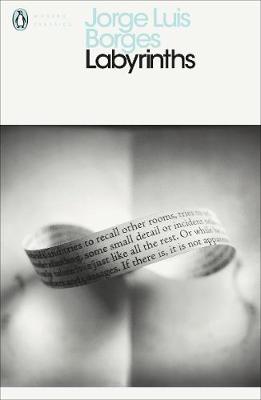Περιγραφή
"His is the literature of eternity." – Peter Ackroyd
Jorge Luis Borges’s Labyrinths is a masterful collection of short stories, essays, and parables that delves into the mysteries of time, identity, and imagination. Edited by Donald A. Yates and James E. Irby, this edition includes an introduction by Irby and a preface by André Maurois, offering a comprehensive look at one of Latin America’s most innovative literary minds.
Highlights of the Collection
"The Library of Babel": An infinite library containing every book that could ever exist, a meditation on infinity and the unknowable.
"Funes the Memorious": The haunting tale of a man cursed with perfect memory, unable to forget even the smallest detail.
"Pierre Menard, Author of the Quixote": A French poet's audacious and enigmatic attempt to rewrite Don Quixote, word for word.
These stories, alongside Borges’s essays and parables, weave a rich tapestry of philosophical paradoxes, magical realism, and profound insights into human existence.
Themes and Insights
The Enigma of Time: Borges plays with nonlinear narratives and infinite loops, challenging our understanding of temporality.
Identity and Creation: The collection questions the boundaries between authorship, reality, and perception.
Imagination and the Infinite: Borges’s works are filled with infinite libraries, labyrinths, and alternate realities, embodying his fascination with the boundless.
Why Read Labyrinths?
A Distinctive Voice: Borges’s unique blend of erudition, playfulness, and philosophical depth makes his work timeless.
Influence on Modern Literature: Borges’s experimental narratives have profoundly shaped contemporary fiction, inspiring writers like Gabriel García Márquez and Italo Calvino.
Perfect Introduction: This collection serves as an ideal entry point to Borges’s rich literary universe.
About Jorge Luis Borges
Born in Buenos Aires, Borges (1899–1986) was a poet, critic, and short story writer. Though he never won the Nobel Prize, his influence on 20th-century literature is immeasurable. His works bridge the worlds of magical realism, existentialism, and postmodernism, earning him a reputation as one of the most significant writers in the Spanish language.










